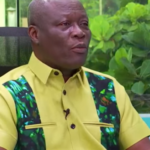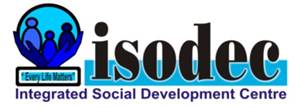Ghana is a nation blessed with abundant natural resources, ranging from rich mineral deposits to vast water bodies and fertile lands. Yet, the full potential of these resources has not been fully harnessed for local development, often leading to environmental degradation, rural-urban drift, and economic disparity.
One of the most effective ways to address these challenges is by transforming the educational curriculum to reflect the unique natural resource locations within the country. This approach would not only promote sustainable livelihoods but also foster environmental harmony and stimulate the growth of local economies.
Integrating Local Resources into Education
The current educational system in Ghana is largely uniform, with little consideration for the diverse geographical and economic realities of different regions. By tailoring education to the natural resources available in specific areas, we can equip students with the skills and knowledge necessary to thrive in their local environments. For instance, schools situated near water bodies could incorporate fishing, aquaculture, and marine conservation into their curriculum. This would not only teach students the practical skills needed for sustainable fishing practices but also instill a sense of responsibility toward protecting aquatic ecosystems.
Similarly, in regions where gold deposits are prevalent, schools could offer courses on small-scale mining, mineral processing, and environmental management. These subjects would prepare students to engage in mining activities in a way that is both economically beneficial and environmentally sustainable. Moreover, by providing a solid foundation in these areas, the education system can help reduce the incidence of illegal mining, known as “galamsey,” which has had devastating effects on the environment.
Promoting Environmental Harmony
Education that is attuned to local resources also promotes environmental harmony. When students learn about the resources in their immediate surroundings, they are more likely to develop a sense of stewardship for the environment. For instance, teaching sustainable agricultural practices in regions with fertile land can help prevent soil degradation and promote biodiversity. In coastal areas, education on marine ecosystems and conservation can lead to the protection of mangroves and coral reefs, which are crucial for maintaining ecological balance.
Furthermore, by integrating environmental education into the curriculum, schools can play a critical role in addressing the challenges of climate change. Students who are aware of the impacts of climate change on their local resources are better equipped to take actions that mitigate these effects, such as adopting renewable energy sources and practicing sustainable land use.
Boosting Local Economies
A curriculum that reflects local resources can significantly boost the economies of rural areas. When students are trained in skills that are directly applicable to their local environments, they are more likely to pursue careers in those areas, thereby contributing to the local economy. For example, a student who has learned about aquaculture in school may go on to start a fish farming business, creating jobs and providing food security for the community.
Moreover, by fostering entrepreneurship and innovation in resource-based industries, education can help diversify the local economy and reduce dependence on a single resource. This is particularly important in regions that are vulnerable to the boom-and-bust cycles of resource extraction, such as mining areas. By encouraging value addition and the development of related industries, such as jewelry making or agro-processing, education can create a more resilient and diversified economy.
Curbing Rural-Urban Drift
One of the most pressing issues facing Ghana is the rural-urban drift, where young people migrate from rural areas to cities in search of better opportunities. This trend has led to overcrowded cities, pressure on urban infrastructure, and the decline of rural communities. However, by transforming the educational curriculum to focus on local resources, we can create viable economic opportunities in rural areas, thereby reducing the need for young people to migrate.
When students are educated in skills that are relevant to their local environments, they are more likely to see the value in staying and working in their communities. For instance, a student who has learned about sustainable agriculture may choose to remain in their village and apply their knowledge to improve local farming practices, rather than moving to the city in search of work. This not only helps to retain talent in rural areas but also strengthens the social fabric of these communities.
Ensuring Sustainable Livelihoods
Sustainable livelihoods are essential for long-term economic development and environmental conservation. By aligning education with local resources, we can ensure that future generations are equipped with the skills and knowledge needed to create sustainable livelihoods. This means not only teaching technical skills but also promoting critical thinking, problem-solving, and innovation.
For example, in areas with rich forest resources, education can focus on sustainable forestry practices, eco-tourism, and non-timber forest products. This approach not only provides income-generating opportunities but also ensures that the forest is preserved for future generations. Similarly, in areas with abundant solar energy potential, schools can teach students about renewable energy technologies, enabling them to develop sustainable energy solutions for their communities.
Conclusion
Transforming Ghana’s educational curriculum to reflect the natural resource locations in the country is not just an educational reform; it is a strategic move toward sustainable development, environmental conservation, and economic empowerment. By equipping students with the skills and knowledge relevant to their local environments, we can foster a new generation of environmentally conscious citizens who are capable of driving local economic growth and reducing rural-urban migration.
This approach requires a concerted effort from policymakers, educators, and communities, but the potential benefits are immense. It is time to rethink education in Ghana—not as a one-size-fits-all system, but as a dynamic and responsive tool that reflects the diverse and rich natural heritage of our nation. By doing so, we can pave the way for a future where all Ghanaians, regardless of where they live, have the opportunity to thrive in harmony with their environment














